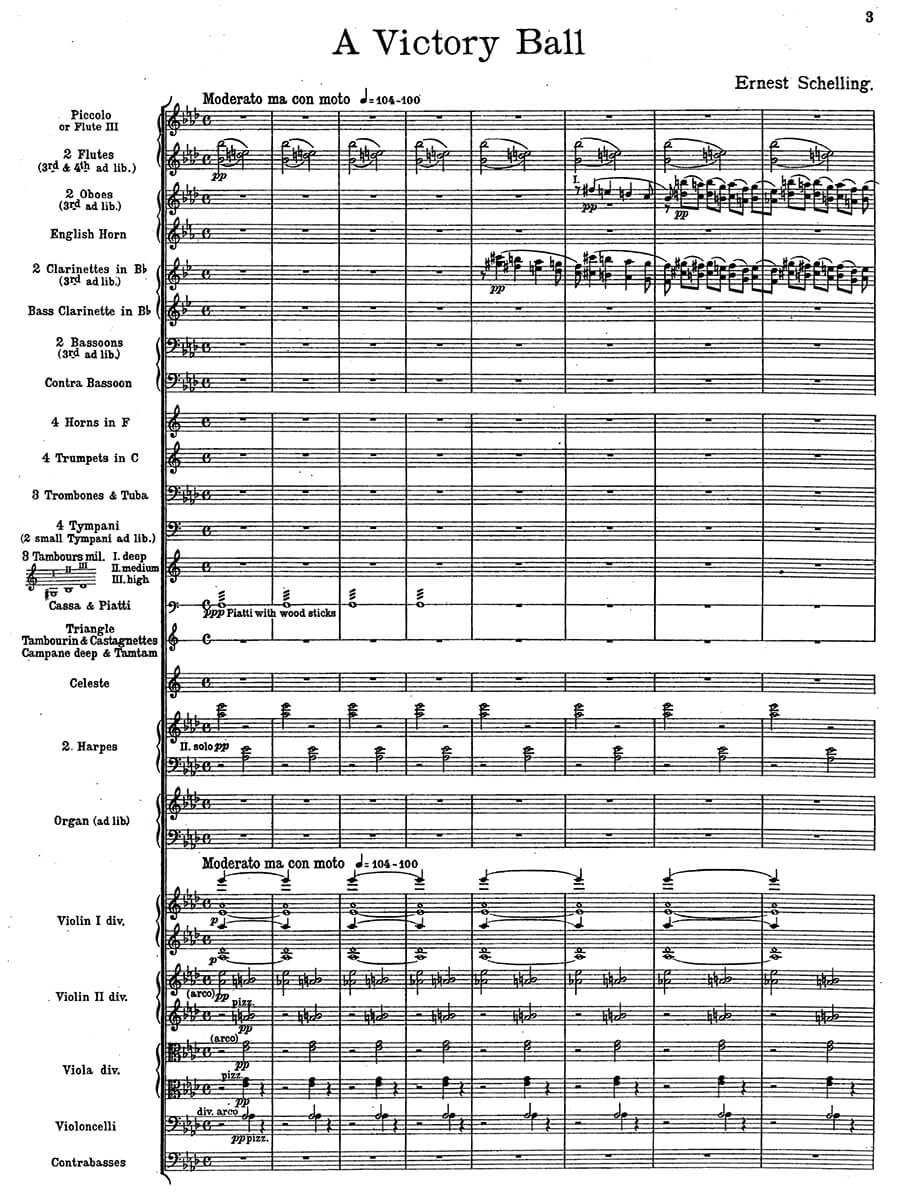A Victory Ball, Fantasy for Orchestra after the Poem by Alfred Noyes
Schelling, Ernest
24,00 €
Preface
Ernest Henry Schelling – A Victory Ball
(geb. Belvidere / New Jersey, 26. Juli 1878 – gest. Manhattan, 8. Dezember 1939)
Fantasy for Orchestra After the Poem by Alfred Noyes
Born in Belvidere, New Jersey, the American pianist, composer, conductor, and pedagogue was initially taught by his father. He made his debut as a pianist at the age of four with a performance at the Philadelphia Academy of Music. At the age of seven he became the youngest musician to ever be accepted into the Paris Conservatoire. There he studied with Mathias, a pupil of Chopin, as well as other notable pedagogues. Before the age of seventeen he had concertized extensively across Europe.
During the years 1898 to 1902 he was the only piano student of the great pianist, Ignaz Paderewski. After making the successful transition to a mature artist, he toured widely as a pianist in Europe and the Americas. Meanwhile, he was also composing and produced a range of orchestra, chamber and solo works, some of which were widely performed.
In 1923 he began honing his skills as a conductor becoming the founder of the Young Peoples’ Concerts for the New York Philharmonic. The first concert was on March 27, 1924. He wanted to excite young persons about music and widen their knowledge. To capture their attention he included large format glass lantern slides along with the lecture and performance of various musical selections. From 1935 to 1937 he was also conductor of the Baltimore Symphony Orchestra. His pedagogical efforts extended to the publication of the Oxford Piano Course for Class and Individual Instruction: Beginner’s Book for Older Pupils (1928/pb. 1956).
A Victory Ball (1923), dedicated “To the memory of an American soldier”, has been Schelling’s most often performed composition. The anti-war poem by English poet, Alfred Noyes (1880-1958) appeared in the 1919 collection, The Elfin Artist and Other Poems, and then had a publication in The Saturday Evening Post of 1920. Its inspiration was a ball that Noyes attended soon after the 1918 Armistice. He found himself wondering what the ghosts of soldiers who had died in the First World War would have thought about the frivolity of the dancers if they could have observed. …
Read full preface > HERE
Score Data
| Edition | Repertoire Explorer |
|---|---|
| Genre | Orchestra |
| Size | 210 x 297 mm |
| Printing | Reprint |
| Pages | 76 |
